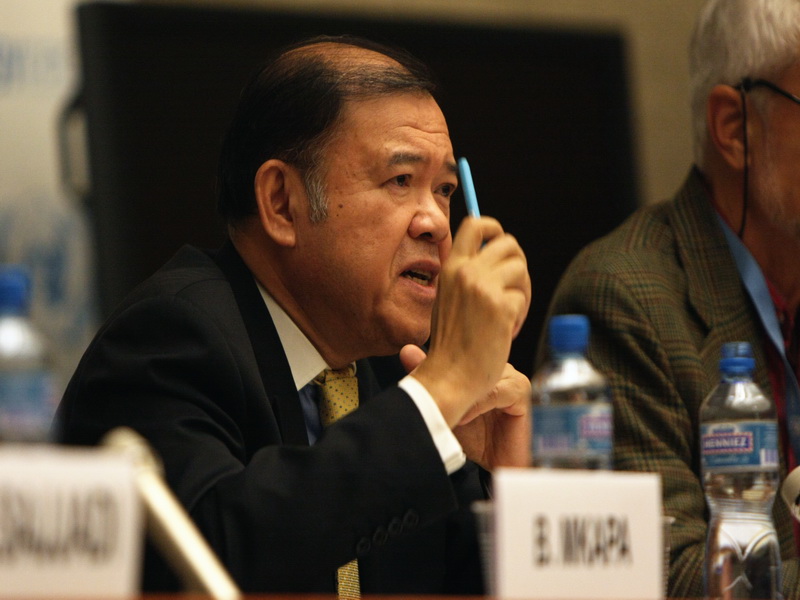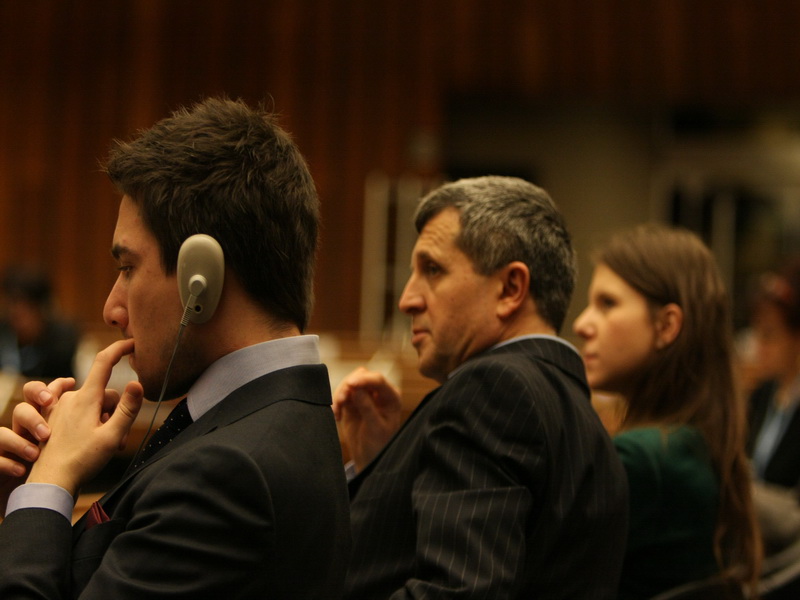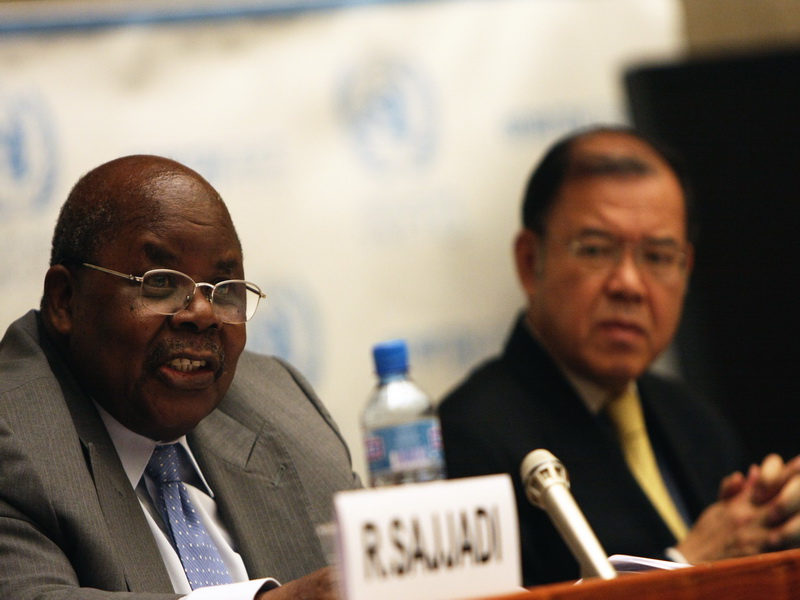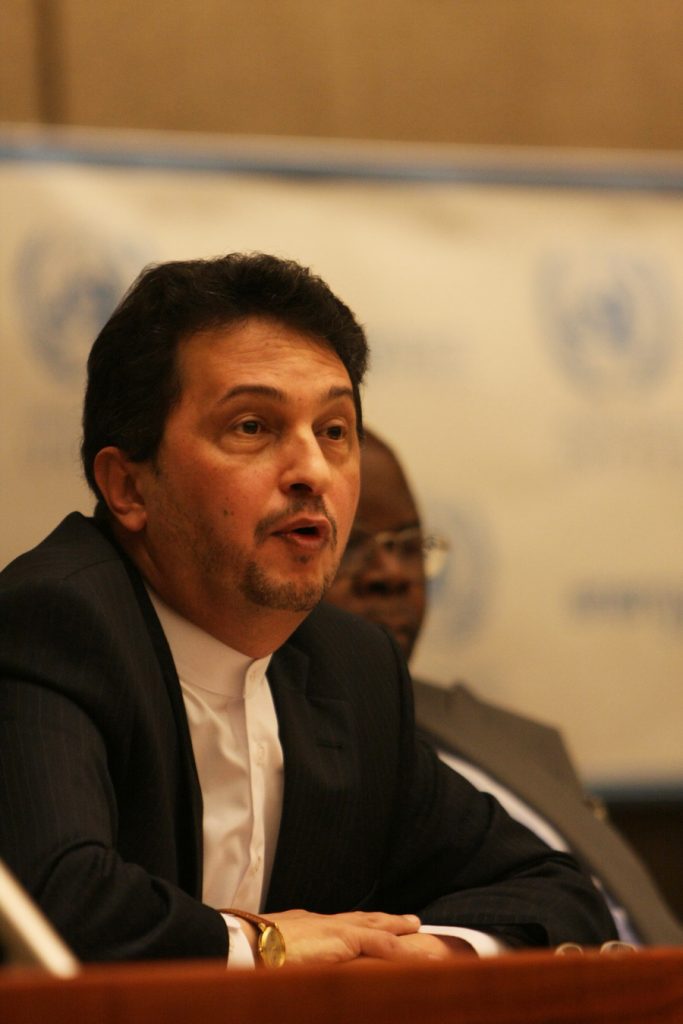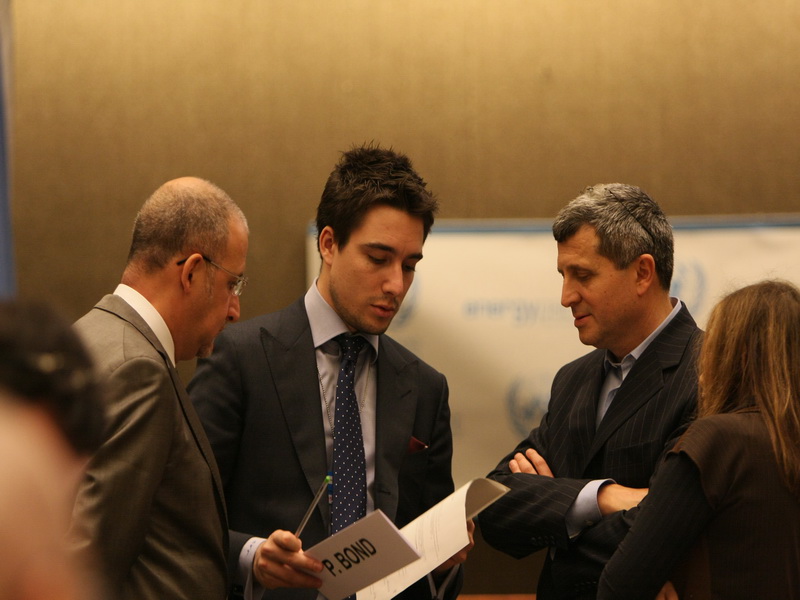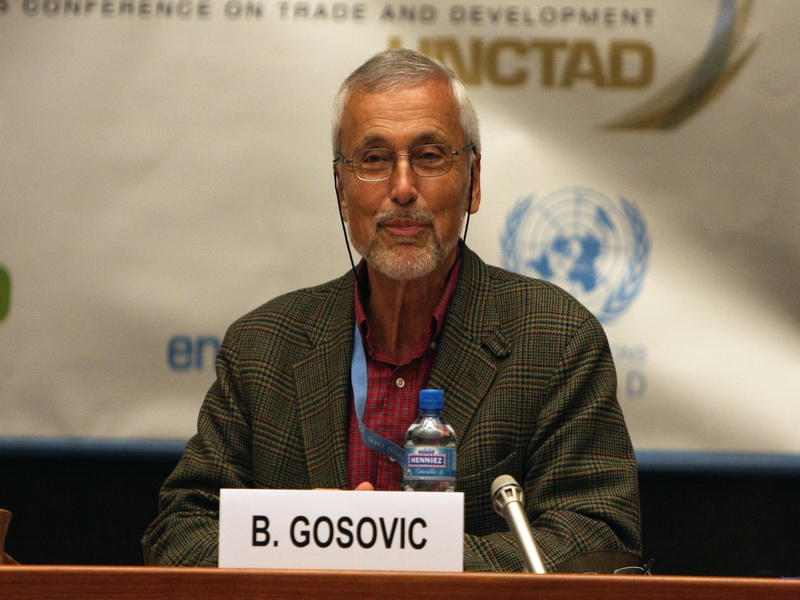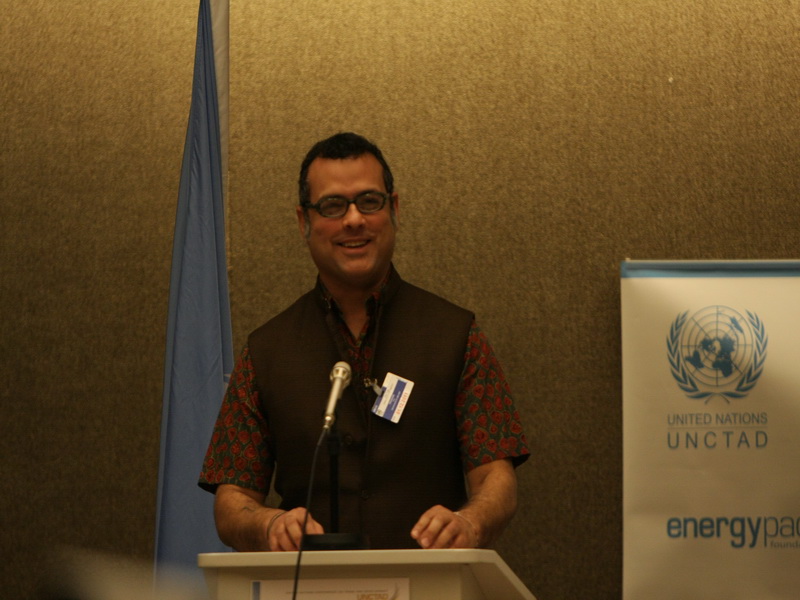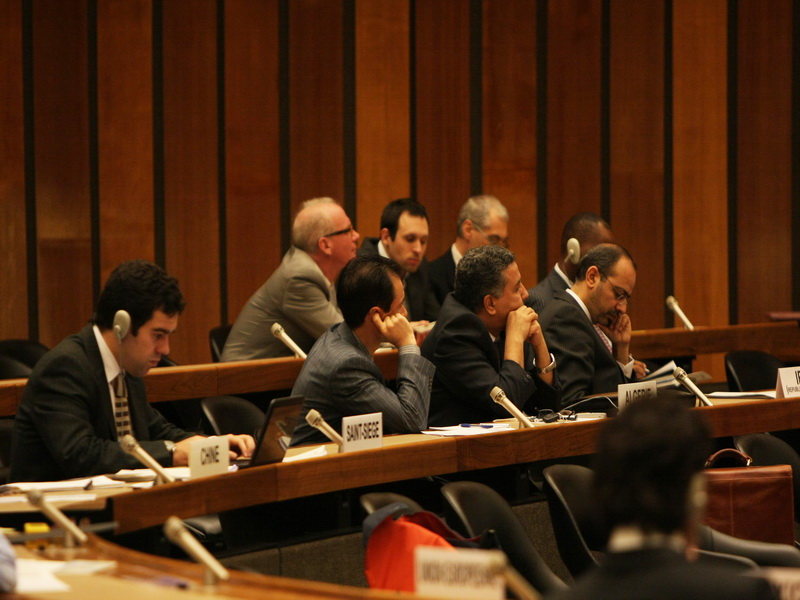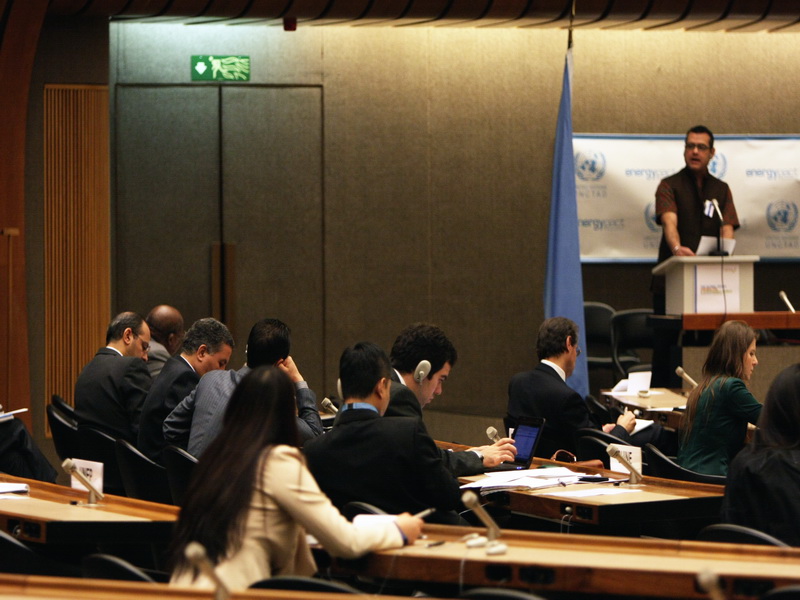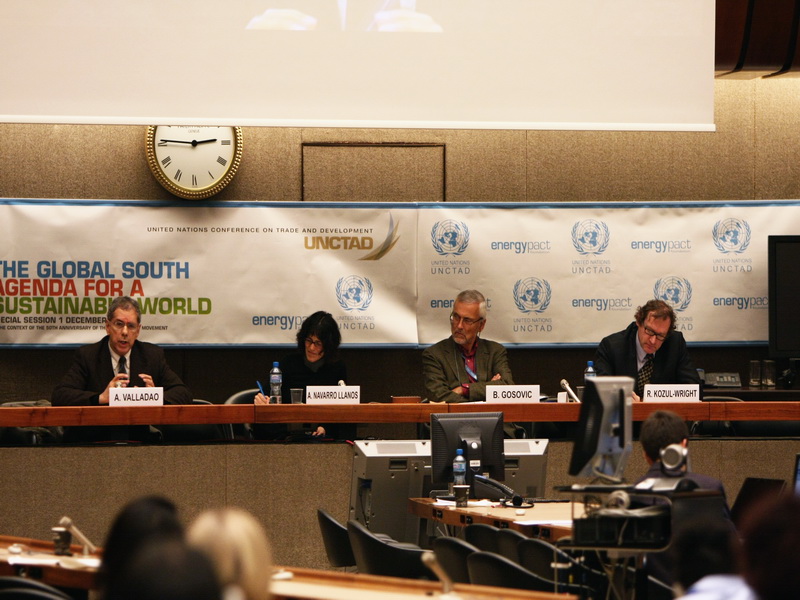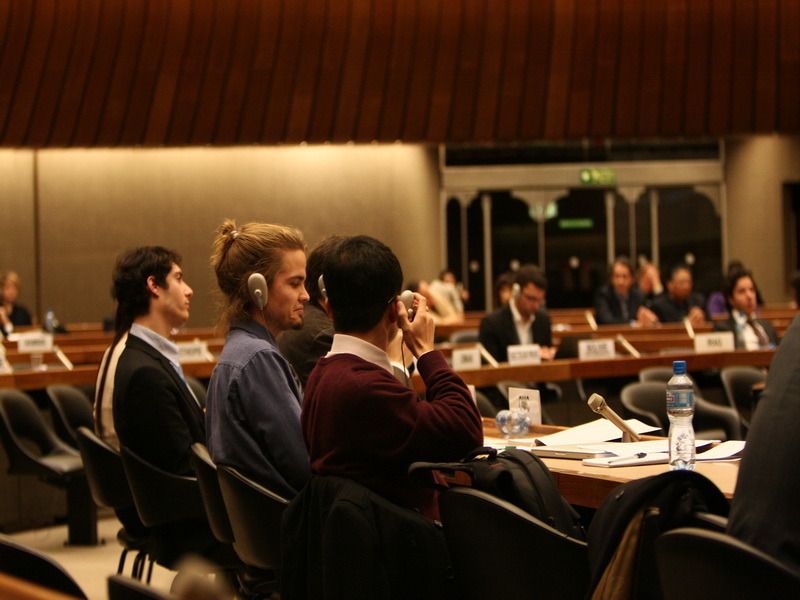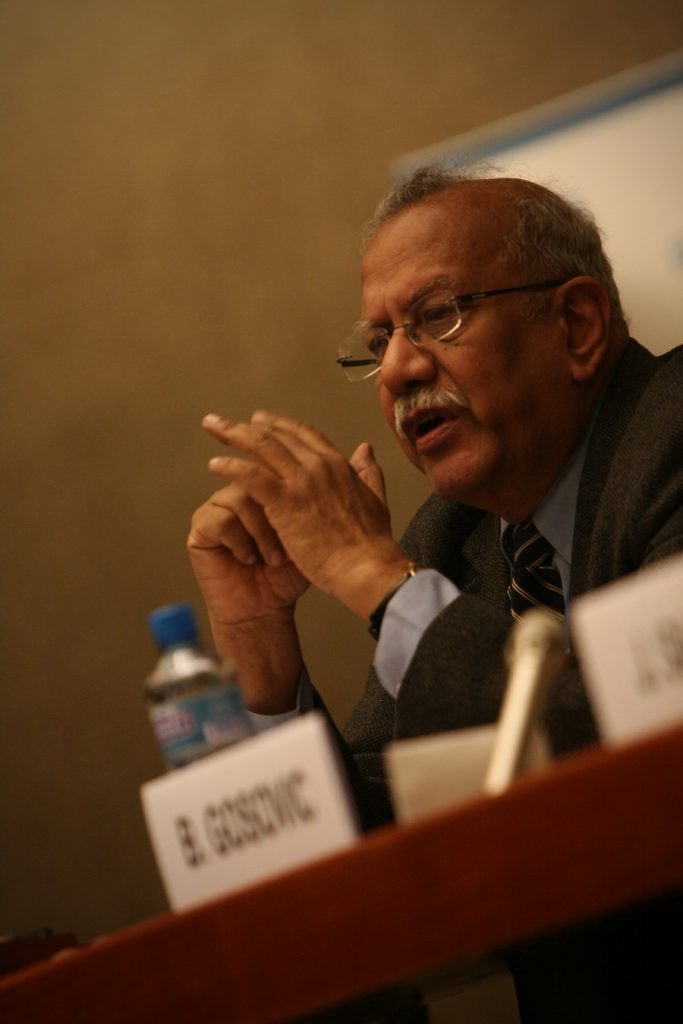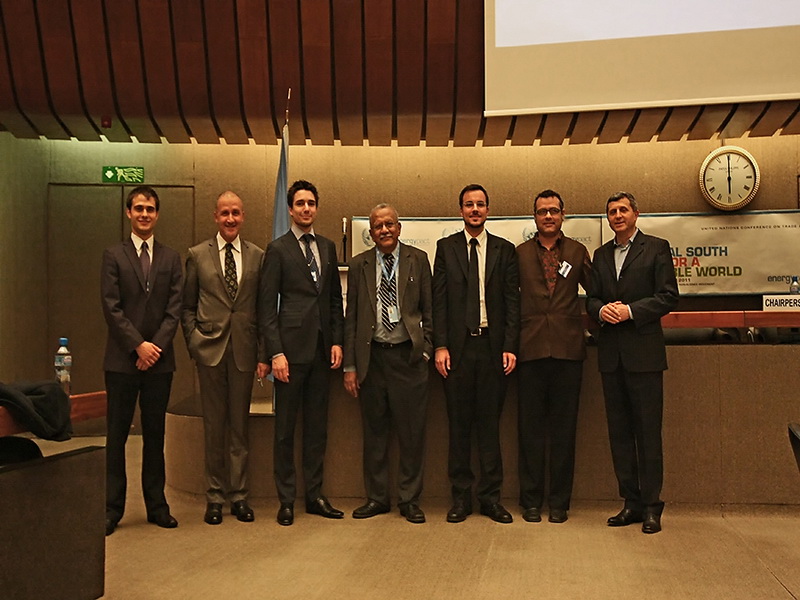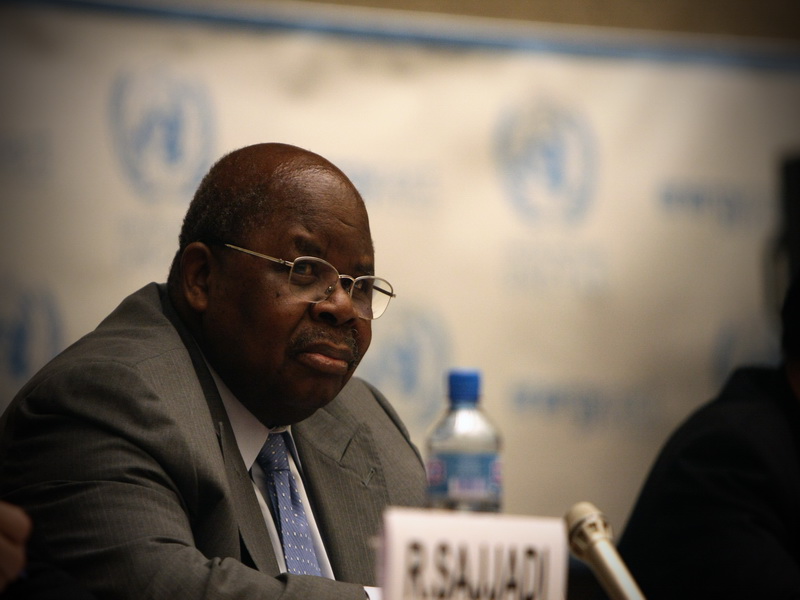“The United Nations and the Non-Aligned Movement have enjoyed a close history over 50 years. Guided by our core principles of equality, justice and peace, we look forward to our continuing work together to address today’s pressing challenges and build a better world for future generations. Climate change is one of the areas in which joint action by the United Nations and the Non-Aligned Movement is essential.”
Enrergypact Unctad
special session
The global south agenda for a sustainable world

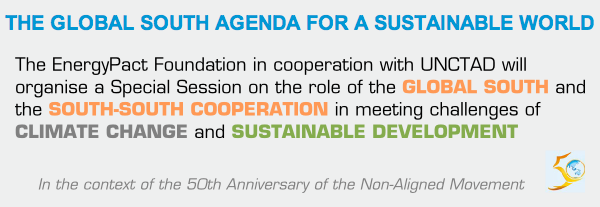
Message of the UN Secretary General Ban Ki-moon to the 16th ministerial conference of the Non–Aligned
Movement in Bali, May 25th 2011
 Boutros Boutros-Ghali
Boutros Boutros-Ghali
Former Secretary General of United Nations
“A MOMENTOUS CHALLENGE
« The EnergyPact – UNCTAD Conference provides an exceptional opportunity for us, developing countries, the GLOBAL SOUTH, to consider where we stand today and what are our common aims for the future in the context of sustainable development, a momentous challenge for human civilization. »

Nitin Desai
Former Under-Secretary General of United Nations Board Trustee WWF International
ACCESS TO SAFE AND AFFORDABLE ENERGY
« A transition to a new energy path in the North is necessary for the South to be able to pursue a sustainable energy future. That is why I am looking forward to the EnergyPact – UNCTAD Conference. »
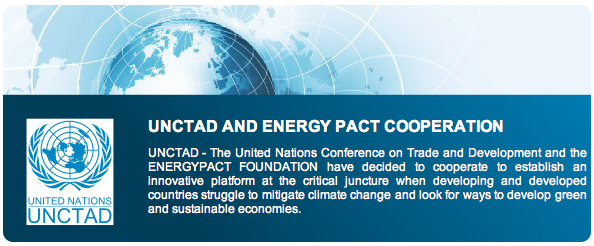

BACKGROUND
The condition of humankind in the 21st century will be shaped by the way in which the challenges of sustainable development are addressed. This represents a tall agenda with uncertain outcomes. The participation of all peoples and countries, within an overarching framework of common well-being and advanced forms of cooperation is essential.
This is a highly complex issue which has given rise to heated debates, disagreements and often stalemate, within and between nations, most prominently between the North and the South during the last four decades.
Developing countries of the global South today account for 4/5 of the world’s population, and are also the home of billions of people who continue to live in poverty and in marginal conditions. These countries occupy more than 2/3 of the world’s land surface area, including some of the Earth’s most vital and coveted renewable and non-renewable resources and ecosystems. They are the world of the future, mouths to feed but also the overwhelming majority of brains and brawn of modern society. They may play key and determining roles in the evolving planetary scenario, as foreshadowed by advances and pioneering efforts in some emerging economies in the South.
Global sustainable development will then centre on complex interrelationships between energy, environment, and development.
CONCEPT PAPER
The meeting will examine the way in which the challenges of climate change can be met in a sustainable manner by focusing on developing countries and in particular, on the dynamics of South-South cooperation. In this context, it seems timely to remember the 50th anniversary of the Non-Aligned Movement (NAM) by holding a conference that links and considers Global South and sustainable themes.
NAM establishment in 1961 was the first step to give policy, institutional and legal substance and identity to the Global South, i.e., the developing countries of Africa, Asia and Latin America who occupied the periphery of the world system dominated by the Western powers. The period since was marked by continuing collective efforts of developing countries, most prominently through NAM and the Group of 77, to organize, to promote common goals and objectives, to shape and democratize the world political and economic order, to have a voice and say in the global arena and to consolidate and defend their political and economic sovereignty.
As noted for example, in a recently published report by UNEP, UNCTAD and UN-OHRLLS, “Why a Green Economy Matters for the Least Developed Countries”, the least developed countries and developing countries “possess the economic conditions, the natural and cultural assets, and the policy setting to embrace, if not lead, a green economy transition, which would in turn accelerate their development”.
This year’s Durban Climate Conference and the Rio+20 Conference will be of paramount importance in the evolving multilateral process. This UNCTAD-EnergyPact event is expected to contribute to this process as well as to an integrated approach to interrelated development and climate change agendas, and a stronger commitment to a green economy, based on a holistic approach.
Leading into the Rio+20 Conference in June 2012, it is clear that if green technologies and means of production are cost-effective and are made available and accessible to all, the majority of our planet’s populations living in developing countries will be able to follow a sustainable and green development path.
Role and Place of the Global South
50 years ago, the Non-Aligned Movement, through coalition-building and new patterns of international cooperation, laid the foundations for a truly multipolar world, pioneering multilateralism. The relevance of this legacy is more valuable now than ever. But how and for which purpose can the so-called “Global South” remain a valid concept and a geopolitical reality in the contemporary international system? This exceptional meeting will analyse what needs to be changed in South-South and North-South relations so that the United Nations core values of equality, justice, and peace do not only remain aspirations of the South, but, instead, become contributions from the South towards better global governance.
Will BRICS Change the World?
Now that South Africa has joined Brazil, Russia, India, and China to form the new BRICS, legitimate questions arise: Is it only an acronym? Is it a coalition for international negotiations? Is it an emerging organization? Is there a cooperative and cohesive agenda for the BRICS? Do they have a strategy? It seems possible that the BRICS will outweigh the rest of the world in terms of demography, economic dynamism, political weight and scientific or technological power. But besides their weight, can they play a global role? Do they want such a role? Are they pursuing national agendas or do they have ambitions to collectively reshape the international order? If so, in which direction? This unprecedented High-Level Panel will shed light on one of the world’s most famous yet least understood acronyms.
Global South and Sustainable Development
At the launch of a recent report published by UNEP, UNCTAD and UN-OHRLLS “Why a Green Economy Matters for the Least Developed Countries” UNCTAD’s Secretary-General, Dr. Supachai Panitchpakdi stated, “There are at least four key elements that need to be addressed for LDCs’ successful transition to a green economy. First, indentifying new sources of funding that can be directly applied to transitional efforts; second, creating an enabling environment that is conducive to private investment in green economy markets; third, taking advantage of trade to create global markets for LDCs’ green goods and services exports; and fourth, designing new effective mechanisms to transfer green technologies to LDCs”.
Considering that LDCs and developing countries form most of the membership of the Global South, it is clear that this major political universe can play a decisive role in fostering sustainable development and climate change mitigation. In line with the above-mentioned Report, this session will explore the idea that the countries of the Global South “possess the economic conditions, the natural and cultural assets, and the policy setting to embrace, if not lead, a green economy transition, which would in turn accelerate their development”. Emerging powers can play a decisive role not only as investors and inventors, but also in helping to bridge the interests of developed and developing countries in international negotiations.
Ahead of the climate conferences of Durban and Rio+20, of the UNCTAD XIII Ministerial Conference and on the eve of 2012: United Nations International Year of Sustainable Energy for All, this panel will discuss the transformational role that the South can play in ensuring that the transition to the green economy will maintain human development, fair trade and a holistic approach to sustainability as top priorities.
CONFERENCE PROGRAMME
Thursday, 1 December, room XVII
09:30 – 10:00 Welcome Coffee
10:00 – 11:30
Official Opening
Supachai Panitchpakdi, Secretary-General, UNCTAD
Benjamin Mkapa, Former President of Tanzania and Chairman of the Board of the South Centre
James Manzou, Ambassador, Permanent Representative of Zimbabwe to the UN in Geneva, Chairman of the G77 + China
Session chaired by Branislav Gosovic, Development Alternatives Global DAG
11:30 – 13:00 Session 1
Role and Place of the Global South
Vijay Prashad, Professor, Trinity College, Vermont, USA: “The Dream History of the Global South”.
Idriss Jazairy, Ambassador, Permanent Representative of Algeria to the UN in Geneva “G77+China: Teamwork in the Face of Moving Goalposts”. – video message.
Roberto Savio, Chairman Emeritus of the Inter Press Service IPS: “The decline of the world of information, and how to give more voice to the South”.
Patrick Bond, Professor, Kwa Zulu Natal University, South Africa – video message
Interaction between speakers and with the audience
13:00 – 13:45 Lunch/Brown Bags
13:45 – 15:15 Session 2
The South Strategies
Angélica Navarro Llanos, Ambassador, Permanent Representative of Bolivia to the UN in Geneva: “ALBA, advancing South-South cooperation”.
Alfredo Valladao, Professor, Institut d’études politiques, Sciences Po, Paris , President of the Advisory Board of the EUBrasil Association, Brussels
Richard Kozul-Wright, Chief, Unit on Economic Cooperation and Integration among Developing Countries, UNCTAD: “The least developed countries and the potential of South-South cooperation”.
Interaction between speakers and with the audience
15:15 – 15:30 Coffee Break
15:30 – 17:15 Session 3
Global South and Sustainable Development
Maurice F. Strong, Secretary-General of the Stockholm and Rio Conferences – video message
Nitin Desai, Former UN Under Secretary General for Economic and Social Affairs, Secretary-General of the Johannesburg Conference: “Energy Futures-Constraint or Opportunity”.
Jeffrey Sachs, Earth Institute, Columbia University – live interactive video session
Interactive dialogue between Nitin Desai and Jeffrey Sachs
Interaction between speakers and with the audience
17:15 – 18:00
Looking beyond horizon: some reflections
Looking beyond horizon: some reflections
Cristovam Buarque, Federal Senator, Brazil: “The Global South Agenda for a Sustainable World”. – video message
Johan Galtung, Transcend International: “Three ideas that could change the South – and the world”.
18:00 – 18:15 Closing Remarks
Speakers
D
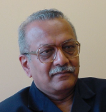
Nitin Desai
Secretary-General of the Johannesburg Conference
Endorsement
The energy prospects that confront the South are significantly different from those that prevailed when the North embarked on its economic expansion in the nineteenth century. The South has to follow a development path that places a far greater emphasis on energy efficiency, energy security and safety and environmental impact. The UNCTAD-EnergyPact Conference is a timely effort to explore the implications of this imperative.
Abstract
Title: Energy Futures-Constraint or Opportunity
The energy prospects that confront the South in the next phase of development will be constrained by rising costs and growing scarcities of fossil fuels and by rising diplomatic pressures for the mitigation of climate change. This constraint can also be an opportunity for the South to step into the space for innovation that can redress the historical imbalance in technological leadership that has led to relationships of dependence.
Biography
Mr. Nitin Desai, a graduate of LSE, taught economics at two UK universities, worked briefly in the private sector, had a long stint as a government official in India, and then joined the UN in 1990. In India, he was in the Planning Commission (1973–88) and later in the Ministry of Finance as the Chief Economic Adviser (1988–90). In the UN, where he was Under Secretary General for Economic and Social Affairs, his major work was the organization of a series of global summits, notably the Rio Earth Summit (1992), the Copenhagen Social Development Summit (1995), the Monterrey Finance and Development Summit (2002), and the Johannesburg Sustainable Development Summit (2002). After his retirement, he has been involved in a variety of public policy activities nationally and internationally. He is a member of the Prime Minister’s Council on Climate Change. He is associated with many national and international NGOs and Research institutions.
P
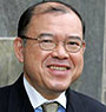
Supachai Panichpakdi
Secretary-General, UNCTAD
Biography
Supachai Panitchpakdi began his second four-year term as Secretary-General of UNCTAD on 1 September 2009, following his unanimous confirmation by the UN General Assembly.
Born in Bangkok, Dr. Supachai attended school there before receiving his Master’s Degree in Econometrics, Development Planning and his Ph.D. in Economic Planning and Development at the Netherlands School of Economics (now known as Erasmus University) in Rotterdam.
In 1973, Dr. Supachai completed his doctoral dissertation on Human Resource Planning and Development under the supervision of Prof. Jan Tinbergen, the first Nobel laureate in economics.
Dr. Supachai began his professional career at the Bank of Thailand in 1974, and in 1986 was elected to the Thai Parliament and appointed Deputy Minister of Finance. In 1988, he was appointed Director and Advisor, and subsequently President, of the Thai Military Bank. In 1992, Dr. Supachai was appointed Senator, and that same year he became Deputy Prime Minister, entrusted with oversight of the country’s economic and trade policy-making. In 2001, he was appointed Visiting Professor at the International Institute for Management Development in Lausanne. He has published a number of books, including Globalization and Trade in the New Millennium (2001) and China and WTO: Changing China, Changing World Trade (2002, co-authored with Mark Clifford).
Dr. Supachai previously served as Director-General of the World Trade Organization (September 2002 to August 2005).


Vijay Prashad
Professor of History, Trinity College, Vermont
Biography
Vijay Prashad is the George and Martha Kellner Chair of South Asian history and the Director of International Studies at Trinity College in Hartford, CT. He is the author of eleven books, including two that were chosen by the Village Voice as the top 25 books of the year, Karma of Brown Folk (2000) and Everybody Was Kung Fu Fighting: Afro-Asian Connections and the Myth of Cultural Purity (2001). His most recent book, The Darker Nations: A People’s History of the Third World (New Press, 2008) won the Muzaffar Ahmad Book Award of 2009.
In 2012, he will release five books: Uncle Swami (New Press), The Poorer Nations: A Possible History of the Global South (Verso), Arab Spring, Libyan Winter (AK Press), [edited with Qalandar Memon and Madiha Tahir] Dispatches from Pakistan (LeftWord) and [edited with Paul Amar] Dispatches from the Arab Revolt (LeftWord). The last two are part of a series, the first volume of which was Dispatches from Latin America, edited with Teo Ballvé. He writes regularly for Frontline (India), Himal (Nepal), Bol (Pakistan), and Counterpunch (web).
He is Vice Chair of the Board of the National Priorities Project, and an active participant in the United National Anti-War Committee.
S

Roberto Savio
Chairman Emeritus of Inter Press Service (IPS)
Biography
Robero Savio is an Italian-Argentinean economist, who dedicated himself to communication for better international relations. He did create several organizations, the largest being Inter Press Service, now the 4th world largest, in 1964. He has been Secretary General of the Society for International Development, and he also founded TIPS, the largest UNDP project for South-South cooperation.
He is one of the founders of the World Social Forum and the World Political Forum. He has worked in several UN organizations and as adviser with several countries of Latin America and Africa. He is presently acting in the global civil society.
V

Alfredo Valladao
Institut d’études politiques, Sciences Po, Paris
The world’s energy matrix is probably the main strategic issue of the 21st century. There will be no progress in the fight against hunger and poverty, and no way of keeping acceptable welfare standards without sustainable economic growth. And this will not be possible without a huge revolution on the way we produce and consume energy. The emerging economies of the South, with their dynamic growth rates and growing energy consumption are part of the problem. But they can – and will – be part of the solution. This conference is a timely event in this moment of crisis and opportunities where the search for new ideas and paradigms has become an urgent task.
Biography
Professor at the Institut d’études politiques de Paris (Sciences Po). President of the Advisory Board of EUBrasil Association (Brussels). Member of the Board of Trustees of UNITAR (United Nations Institute for Training and Research). Senior Research Fellow at the European Union Institute for Security Studies (EU-ISS – Paris). Former Director of the Mercosur Chair of Sciences Po and former Coordinator of the Working Group on EU-Mercosur Negotiations and of the International Conference of Forte Copacabana on “Defense and Security European-South American Dialogue”.
Journalist, columnist for Radio France International (RFI), he contributes regularly to CBN and BANDNEWS (Brazil). Former diplomatic and defense correspondent for the daily Libération (France). Member of the Editorial Board of the review Economia (Morocco). Founder and former member of the Editorial Board of the economic and geopolitical yearbook L’Etat du Monde (France).
He organizes and participates regularly in high-level conferences and workshops on international trade, regional integration, global diplomacy and security, Brazil and Latin America affairs. He has published extensively on these subjects.


